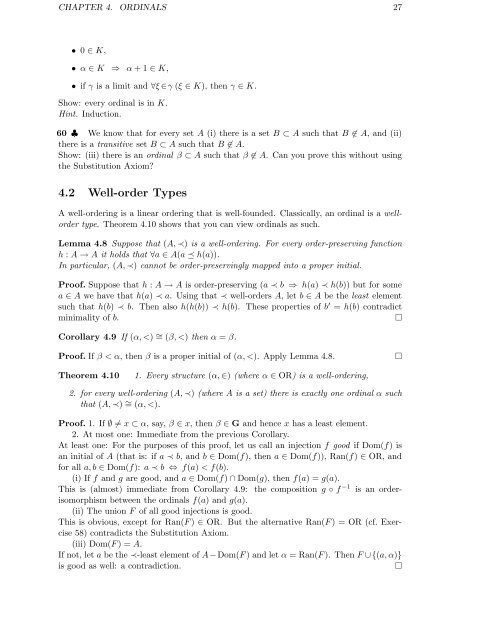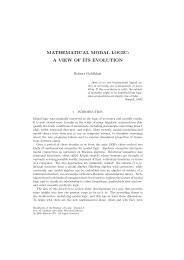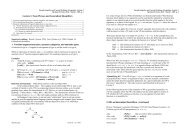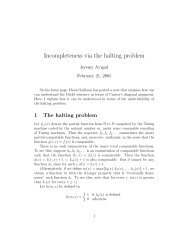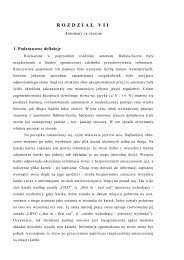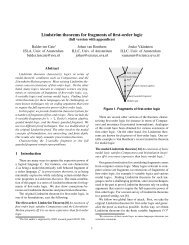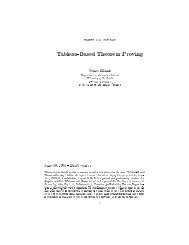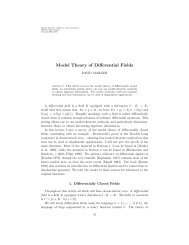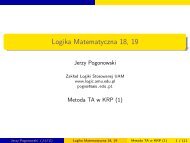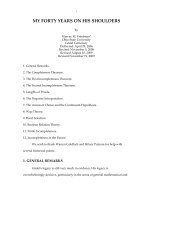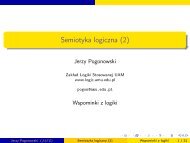Zermelo-Fraenkel Set Theory
Zermelo-Fraenkel Set Theory
Zermelo-Fraenkel Set Theory
Create successful ePaper yourself
Turn your PDF publications into a flip-book with our unique Google optimized e-Paper software.
CHAPTER 4. ORDINALS 27<br />
• 0 ∈ K,<br />
• α ∈ K ⇒ α + 1 ∈ K,<br />
• if γ is a limit and ∀ξ ∈γ (ξ ∈ K), then γ ∈ K.<br />
Show: every ordinal is in K.<br />
Hint. Induction.<br />
60 ♣ We know that for every set A (i) there is a set B ⊂ A such that B ∉ A, and (ii)<br />
there is a transitive set B ⊂ A such that B ∉ A.<br />
Show: (iii) there is an ordinal β ⊂ A such that β ∉ A. Can you prove this without using<br />
the Substitution Axiom?<br />
4.2 Well-order Types<br />
A well-ordering is a linear ordering that is well-founded. Classically, an ordinal is a wellorder<br />
type. Theorem 4.10 shows that you can view ordinals as such.<br />
Lemma 4.8 Suppose that (A, ≺) is a well-ordering. For every order-preserving function<br />
h : A → A it holds that ∀a ∈ A(a ≼ h(a)).<br />
In particular, (A, ≺) cannot be order-preservingly mapped into a proper initial.<br />
Proof. Suppose that h : A → A is order-preserving (a ≺ b ⇒ h(a) ≺ h(b)) but for some<br />
a ∈ A we have that h(a) ≺ a. Using that ≺ well-orders A, let b ∈ A be the least element<br />
such that h(b) ≺ b. Then also h(h(b)) ≺ h(b). These properties of b ′ = h(b) contradict<br />
minimality of b.<br />
□<br />
Corollary 4.9 If (α,


